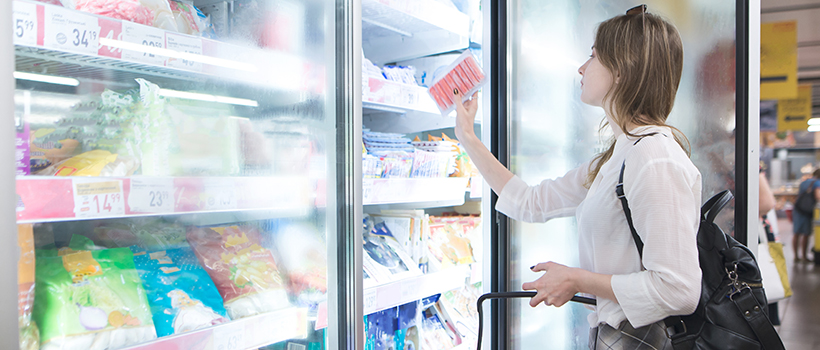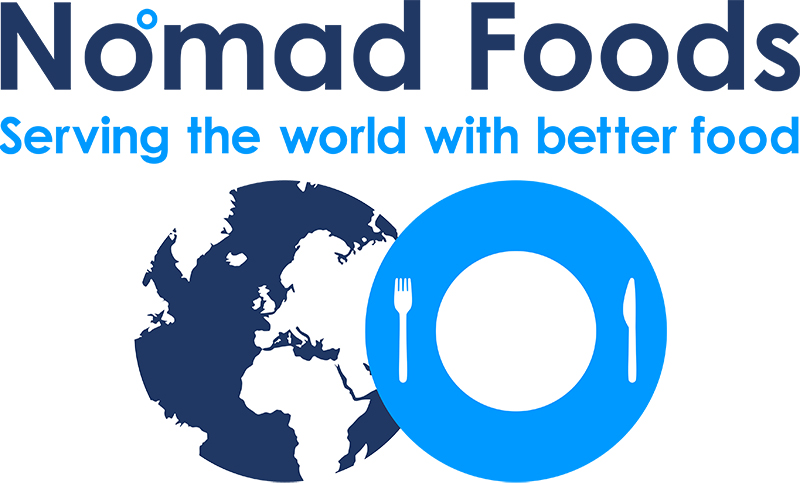

Helping Nomad Foods explore opportunities to store frozen food at higher temperatures
Opportunity
Nomad Foods came to us with the challenge to help them answer a really important question: Can frozen food products be stored at a higher temperature (than the -18°C industry standard)?
Key considerations included whether it is lawful to do so and also to ensure the food products remain safe and of consistent quality at higher temperatures. In addition, we wanted to find out whether storing frozen food at higher temperatures could facilitate a drop in energy consumption, leading to lower GHG emissions and cost savings. If so, the findings could have a profound impact on the frozen food industry as a whole, supporting decarbonisation and sustainability agendas.
We brought together various disciplines from across our expert teams – regulatory, product innovation, microbiology, sensory and nutrition – to support Nomad Foods with this venture.
Approach
1. Regulatory review
The first stage of this comprehensive project was a regulatory review, to confirm whether or not there was any laws that would prevent a departure from the industry standard freezing temperature of -18°C.
The regulatory mapping of both the UK and Europe provided Nomad Foods with the necessary understanding of relevant current legislation and where temperature change could feasibly happen in the more immediate future.
2. Study design and implementation
The next step was for Campden BRI to design a study that would allow Nomad Foods to test the impact of different freezing / storage temperatures on the safety and quality of their products over shelf-life.
The pilot study we devised used four freezing temperatures (ranging from -18°C up to -9°C), which were applied to a range of nine savoury products including poultry, coated fish, natural fish, vegetables, plant based and pizza. Through the analysis performed over the three month storage time, the impacts on eight key areas were explored, including food safety, texture, nutrition, oxidative rancidity, drip loss, packaging, sensory and energy use.
Results
The study has shown that for every 3 degrees Celsius increase in temperature, there is a drop in freezer energy consumption of 10-11%
The results of the three month pilot study indicated that increasing the frozen storage temperature by 3°C could reduce freezer energy consumption by more than 10% (compared to using -18°C), without compromising product safety or nutrition, or having any noticeable impact on the texture or taste.
The study has since been extended to cover the full 18 months shelf-life of a range of different products. If similar results continue, they may represent a huge opportunity for Nomad Foods – and possibly the entire frozen food industry – to adopt higher storage temperatures, reduce energy costs and carbon footprint, whilst continuing to ensure safe, quality, nutritious food for consumers.
Georgios Tetradis-Mairis, Head of R&D Futures at Nomad Foods, said: “Frozen food already compares very well to other preservation methods when it comes to overall carbon footprint. However, this study enables us to explore further improvements in energy consumption and carbon emissions when storing or transporting frozen products. It’s a very exciting opportunity and we look forward to continuing our research in this space with Campden BRI.”
In terms of next steps, we’re now in discussions to include temperature monitoring of the whole frozen food logistics supply chain, from initial production freezing through to supermarket aisle freezers, as well as how we can continue to support Nomad Foods in sharing their work with the wider frozen food industry.
The Campden BRI difference
Renowned as an independent expert in the food and drink industry, we have more than 200 scientists and technical experts collaborating on a wide range of projects every day.
No matter what our client’s challenge may be, we consistently deliver innovative solutions, helping them deliver key strategic projects and realise their vision for the future.
We take a holistic approach to shelf-life testing that provides insight into all aspects of the food. Using state-of-the-art facilities and the latest methods and technology, you can be sure of a high-quality service that will help you to improve your products, processes and profitability, whilst protecting product safety and quality.
How can we help?
If you’d like our support with your next project, contact our team to find out how we can help.
Download our FREE Maximising Shelf-life eBook today!
Explore different strategies to maximise and extend product shelf-life, without compromising safety or quality.






